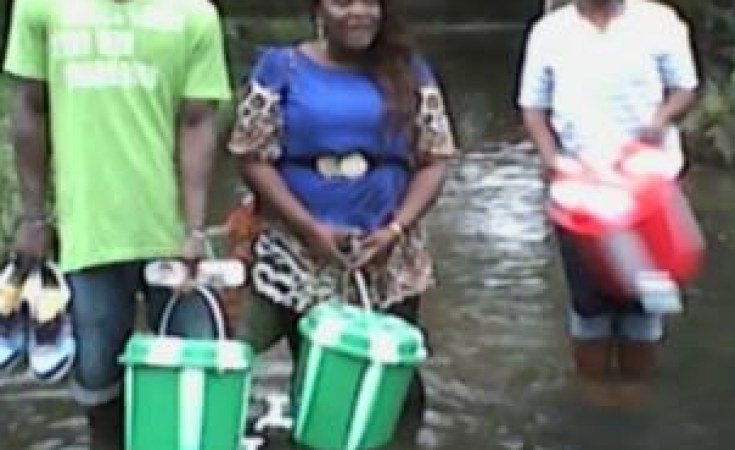International news reports about Liberia left the impression of overwhelming irrationality in response to the Ebola crisis – an impression that endures among both policy makers and a larger public outside Africa. It's true that fear provoked unfortunate incidents from some communities in Liberia, as well as some stumbles in the government response. But Liberians across the country worked hard and courageously - despite the lack of a strong international effort to supply the equipment and medical supplies needed to stem the virus.
In contrast to the international response to the strain of the Zika virus spreading from its locus in Latin America, west Africa was cut off and isolated. Airlines suspended service to the three most-affected countries. Ships stopped calling at their ports. Two exceptions provided a thin, fragile lifeline to Liberia in the terrible early months – Royal Air Maroc from Morocco and Brussels Airlines from Belgium.
It wasn’t enough. Here’s an excerpt is from an AllAfrica analysis [http://allafrica.com/stories/201408201797.html] in August 2014, as the epidemic was galloping through the region:
Liberia, one of the three most-affected countries, doesn't have enough gloves even for medical staff. Overwhelmed international caregivers – like the uniquely engaged Médecins Sans Frontières/Doctors Without Borders (MSF) – are expressing disbelief at the 'too little, too late' international response.
"We are completely amazed by the lack of willingness and professionalism and coordination to tackle this epidemic," the group's operations director, Brice de le Vingne, told the Financial Times, saying Liberia, where MSF is scaling up treatment centers, is a country on the verge of collapse. "We have been screaming for months," he said.
The group says there is nowhere near the assistance needed, despite recent efforts. Only after a traveler from Liberia took the virus to oil-rich Nigeria, Africa's most populous nation and host to large international investments and businesses, did the global response reach even the current modest levels.
By the time the first Ebola treatment center built by the United States was opened in Buchanan, Liberia, there were no cases in the area. AllAfrica’s Boakai Fofana visited the new-but-empty facility. [link]
There were heroes among the international community, of course. Medical volunteers from around the world contributed needed expertise for an outbreak never before seen anywhere and helped to scale up the response. Their engagement has been celebrated in world media.
Stories of the doctors and nurses and volunteers in Liberia and the rest of the region have been less told – the obstetricians who delivered babies with hands wrapped in plastic garbage bags when protective gloves were unavailable; the nurses who helped in homes when clinics closed; the families who refused to abandon their spouses or parents or children.
Also untold are the stories of struggles to recover. No less a crisis than a hurricane or an earthquake or a tsunami, Ebola has left economies shattered and health systems decimated.
Liberia, which in the years just before Ebola struck had reduced child mortality at a rate faster than anywhere else in sub-Saharan Africa – over 68 per cent from the 1990s rates – is working now to get back to the pre-Ebola level. Analyses last year from the World Bank, the International Monetary Fund and the United Nations Development Program showed the economies of Liberia, Guinea and Sierra Leone still shattered. The region needs a coordinated surge of development assistance to alleviate some of the costs of the slow global response to Ebola.
A December 2015 report by a Harvard Global Health Institute and London School of Hygiene and Tropical Medicine Independent Panel raised concerns that the lessons of Ebola have not been learned. And the real story of the Ebola story and its aftermath has not been told.
This report is part of coverage made possible by a grant from the Like a River Fund.


